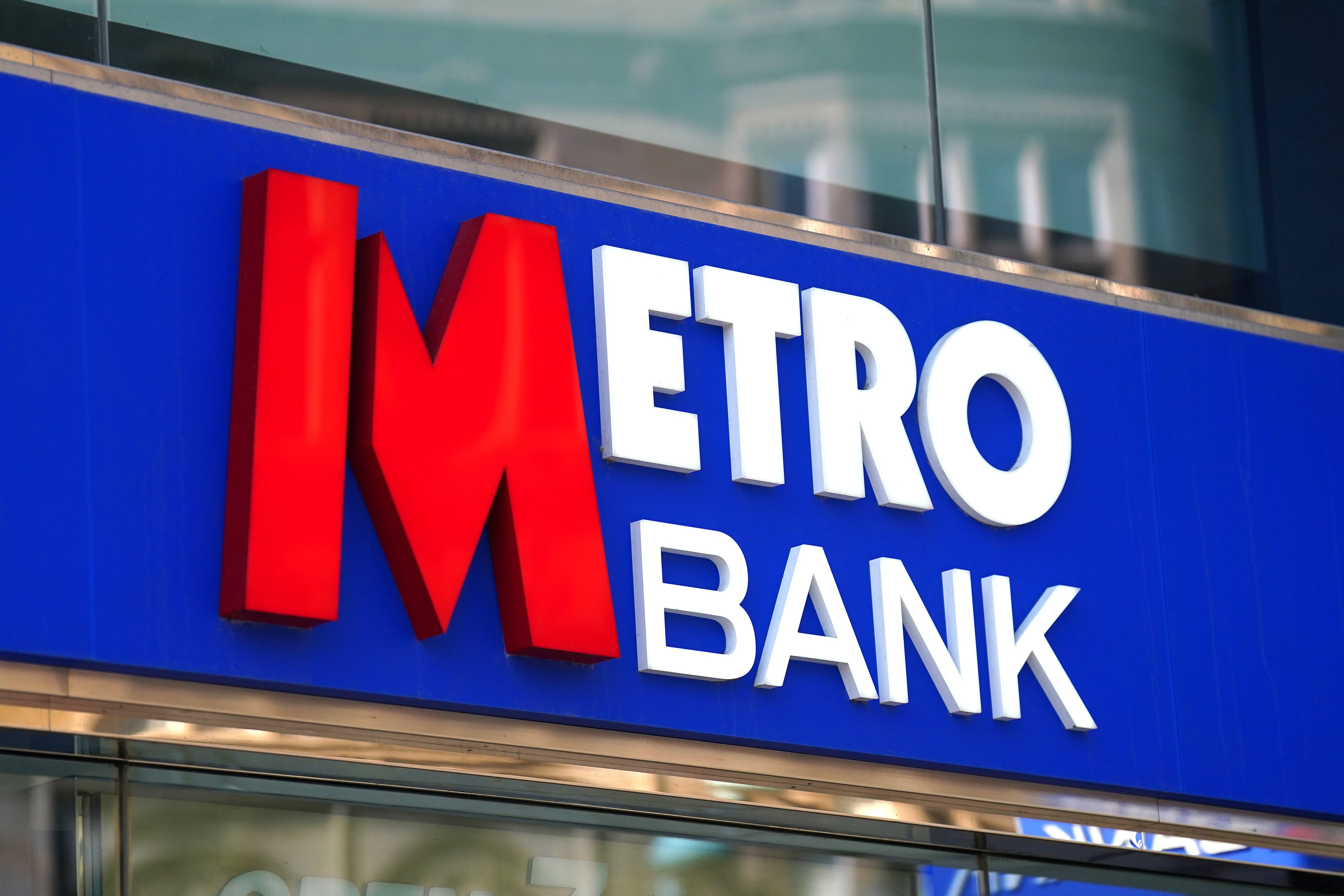Metro Bank rescue deal leaves Colombian billionaire as biggest shareholder
Metro Bank raised £150 million from shareholders, on top of new loans and debt refinancing.

Your support helps us to tell the story
From reproductive rights to climate change to Big Tech, The Independent is on the ground when the story is developing. Whether it's investigating the financials of Elon Musk's pro-Trump PAC or producing our latest documentary, 'The A Word', which shines a light on the American women fighting for reproductive rights, we know how important it is to parse out the facts from the messaging.
At such a critical moment in US history, we need reporters on the ground. Your donation allows us to keep sending journalists to speak to both sides of the story.
The Independent is trusted by Americans across the entire political spectrum. And unlike many other quality news outlets, we choose not to lock Americans out of our reporting and analysis with paywalls. We believe quality journalism should be available to everyone, paid for by those who can afford it.
Your support makes all the difference.Bosses of ailing Metro Bank managed to agree a deal with shareholders on Sunday after crunch weekend meetings which saw a Colombian billionaire seize a controlling stake in the bank.
The high street lender said the new plan will see investors put in an extra £150 million, in return for taking over a majority of its shares.
Investors who hold Metro’s bonds will also be lending it a further £175 million as part of the deal, the bank revealed.
It hands control over the bank – 53% of the shareholding – to Jaime Gilinski Bacal, who owns one of Latin America’s biggest banking empires, according to Forbes.
The Colombian billionaire is thought to be worth around 5.3 billion US dollars (£4.4 billion), and is primarily based in London.
He had previously owned around 9% of the bank through Spaldy Investments, but will scoop up another big chunk of the shares for £102 million. At 30p per share, the deal is cheaper than Metro’s lowest-ever share price of 34p.
Metro Bank hit that price on Thursday after years of trouble at the lender, which was set up in 2010 as a challenger to the regular banks.
At the time regulators had been pushing for more competition in the market in the wake of the financial crash, allowing Metro to become the first new high street bank in the UK for more than 150 years.
At the time, the plan was to open between 200 and 250 branches in Greater London within the decade. Today it has 76 branches and 2.7 million customers.
But the big dreams took a hit in 2019 when the bank was forced to go to shareholders to raise £350 million after it discovered a miscalculation on its books.
It led to shares, which traded at more than £40 each at one point in 2018, to fall to £2.10 by the start of 2020.
As recently as March this year Metro said it had “greatly improved” its processes and was returning to profit.
But last week reports emerged that it was trying to raise £600 million to shore up its finances.
The business suffered after regulators last month refused to approve a request from the bank to lower the capital requirements attached to its mortgage business.
But the weekend deal helped Metro regain some lost ground, with shares rising more than 16% on Monday morning.
On top of the deal’s £325 million capital raise, Metro will also refinance £600 million in debt.
Today’s announcement marks a new chapter for Metro Bank
Chief executive Daniel Frumkin said: “Today’s announcement marks a new chapter for Metro Bank, facilitating the delivery of continued profitable growth over the coming years.”
Mr Gilinski Bacal said: “I have been an active investor in Metro Bank since 2019. The opportunity to become the bank’s major shareholder is driven by my belief in the need for physical and digital banking underpinned by a focus on exceptional customer service.”
The Prudential Regulation Authority, which had reportedly been looking for a buyer for Metro Bank, said: “The Prudential Regulation Authority welcomes the steps taken by Metro Bank to strengthen its capital position.”